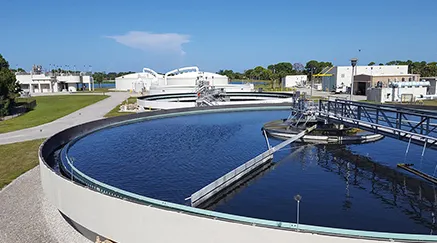-
 Phone:
Phone: -
 Email:
Email:

baling wire factory
The Baling Wire Factory An Integral Component of Modern Industries
In an era where efficiency and sustainability are paramount, the role of baling wire factories has become increasingly significant. These facilities produce essential materials used in various sectors, including agriculture, recycling, and construction. This article explores the importance of baling wire, the manufacturing processes involved, and how these factories contribute to a more sustainable future.
Understanding Baling Wire
Baling wire is a strong, durable wire used to bind bales of material such as hay, cotton, recyclables, and other bulk products. The wire helps organize and compact loose materials into manageable units, making transport and storage more efficient. With the growing focus on sustainability, the demand for baling wire has surged, especially in recycling operations, where materials need to be bundled for shipment to processing facilities.
The Manufacturing Process
The production of baling wire begins with the selection of high-quality raw materials, typically steel or other durable alloys. This choice of metal ensures strength and resilience, vital for the wire’s functionality. The manufacturing process can vary, but it generally includes the following steps
1. Wire Drawing Large coils of metal are drawn through a series of progressively smaller dies. This process reduces the wire’s diameter while increasing its tensile strength.
2. Coiling Once drawn to the desired thickness, the wire is coiled into large spools. This makes it easy for manufacturers and end-users to handle the wire.
3. Galvanization (optional) To improve corrosion resistance, the wire may undergo a galvanization process. This involves applying a layer of zinc, enhancing the wire's durability against the elements.
4. Cutting and Packaging The final steps involve cutting the wire into specific lengths based on customer requirements and packaging it for shipment.
baling wire factory

Each stage of production must adhere to rigorous quality control measures to ensure that the final product meets the industry standards necessary for commercial use.
Applications and Economic Impact
Baling wire plays a crucial role in several industries. In agriculture, it is used to bind hay and straw bales, promoting efficient storage and transport. The recycling industry relies heavily on baling wire to compact materials like cardboard, plastics, and metals, facilitating seaborne and overland shipping to recycling plants.
Furthermore, the construction industry utilizes baling wire in various applications, including securing insulating materials and reinforcing structures. Thus, baling wire contributes to cost reductions and increases efficiency across multiple sectors.
The economic impact of baling wire factories extends beyond their immediate production. They provide numerous jobs, from manufacturing roles to logistics and distribution positions. By fostering local economies, these factories help sustain communities.
Environmental Benefits
Baling wire factories also play a critical role in promoting environmental sustainability. By aiding in the recycling process, they help reduce waste and encourage the repurposing of materials. Efficient packaging of recyclables ensures less landfill use and supports global efforts to reduce pollution and conserve resources.
Moreover, the introduction of eco-friendly materials and production techniques in some baling wire factories indicates a positive trend towards sustainable manufacturing practices. As industries increasingly seek to minimize their carbon footprint, the evolution of baling wire production is likely to be aligned with these goals.
Conclusion
In conclusion, baling wire factories are indispensable to modern economies and environmental initiatives. Their role in producing high-quality baling wire facilitates efficient operations across various sectors, supporting agriculture, recycling, and construction. As we strive for a sustainable future, these factories will continue to evolve, embodying the principles of efficiency and eco-friendliness necessary for a better world.
-
Wire Mesh for Every Need: A Practical SolutionNewsJul.25,2025
-
Steel Fences: Durable, Secure, and Stylish OptionsNewsJul.25,2025
-
Roll Top Fencing: A Smart Solution for Safety and SecurityNewsJul.25,2025
-
Cattle Farm Fencing Solutions for Maximum SecurityNewsJul.25,2025
-
Affordable Iron Binding Wire SolutionsNewsJul.25,2025
-
Affordable Galvanized Wire SolutionsNewsJul.25,2025
-
Wire Hanger Recycling IdeasNewsJul.25,2025








